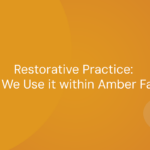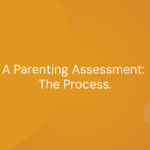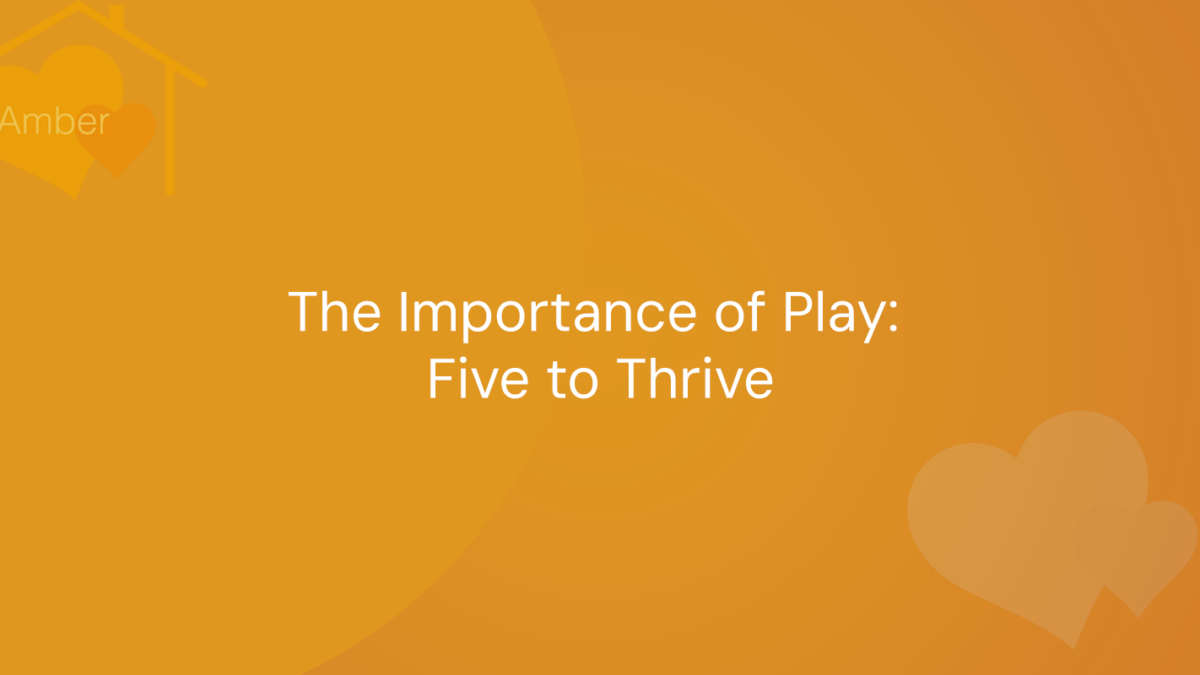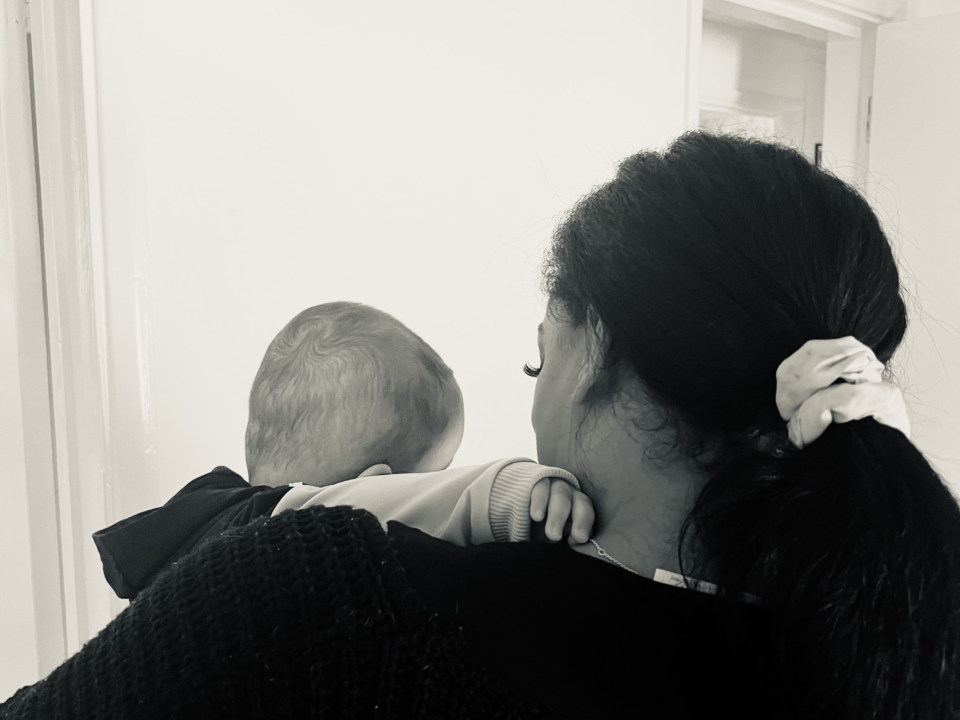
Restorative Practice: Why We Use it within Amber Family.
02/08/2022
A Parenting Assessment: The Process.
06/10/2022Ange Cain. September 2022.
It is common for parents to believe their baby does not need play until they begin smiling and responding to them. However, research has found a baby’s brain begins developing in the womb, and the first 1000 days, from a child’s conception to age 2, is a critical period to begin building the foundations of a child’s health and development (physical, cognitive, social, emotional and behavioural).
Our brains are made up of several different areas that control everything we do, from walking and hearing to problem-solving and how we feel. Each area in the brain has millions of neurons which communicate with each other by repeatedly passing messages over and over, forming a ‘neural pathway’, which is thought of as the brain’s wiring. A baby’s brain’s wiring is not fully connected at birth but is very active and developing in response to what’s going on around them. Meaning it’s the day-to-day experiences such as being read to, interacted with, or even just when people respond to them that help their brain develop. These connections develop at an extremely fast pace in the first years of a baby’s life. A person’s health, well-being and life chances in the future are thought to be affected by how their brain develops in their early years of life, starting in the womb.
There is evidence and research that healthy brain development is created by a simple and effective approach, which is known as, the ‘five to thrive’, created by Kate Cairns. Five to Thrive is based on five key activities that are thought to be the building blocks for brain development and healthy communication, which will help them to grow, develop and have positive connections with you, as well as help maintain healthy brains as they grow throughout their lives.
The five key activities of Five to Thrive are;
- Respond– responding and assessing needs
From the moment your child was born they needed you, without your care and love your baby wouldn’t have survived. You did this by responding to their needs. As your baby grows it is important to continue responding and being consistent in how you interact with your child. Responding warmly and predictably to your baby and creating routines helps them feel safe. It shows them that they can count on you when they are sick, hungry, upset or just need some comfort and that you can meet their needs. But babies also reach out to you in countless positive ways—by babbling, making sounds, or smiling. When you respond lovingly and consistently, the connections in your baby’s brain grow strong. These strong connections then carry messages between the different parts of their brain more quickly. Responding early to their needs enables babies to feel secure and calm.
- Cuddle/engage – connecting and engaging
Cuddle your baby as often as you like, babies cannot be spoilt or have too much contact. All sorts of touch can be included in the use of the word ‘cuddle’, being picked up, feeding, massage and holding hands when they are older. The feeling of being near to you and feeling safe fills their body with special chemicals that help their brain grow. Research shows, that the patterns that grow in their brain when you cuddle them are important for your baby’s mental, emotional and social development, also the bond developed has effects later in your child’s life, in terms of self-confidence, their ability to cope with life stressors and future relationships, meaning that all their life they will be able to feel safe with safe people.
- Relax – self-regulating stress
Your baby’s body works in tune with yours, so if you are stressed your baby will feel this way too. When you relax, your heartbeat slows down, your blood pressure drops and your muscles relax, then you feel calm and comfortable which in turn will mean your baby will too. That calm feeling in babies fills their bodies with chemicals that help their brains grow.
- Talk – creating a narrative (activating the left side of the brain)
Your baby loves the sound of your voice. They love it when you talk when you sing and when you make nonsense noises. Talking to your baby and listening to them in return is one of the best ways to stimulate and bond with them. Even before your baby begins to talk, they communicate with you through facial expressions, body language and crying. Every time you interact or take turns communicating with your baby, thousands of new brain connections are made. They learn so much more from conversations than just language, for example, the way people communicate and how they interact. This will support them throughout their life.
- Play – being playful (activating the right side of the brain)
Your baby needs you to soothe them when their upset, but they also need you to make life interesting for them. Play is central to your baby’s learning and development, when you play with your baby their brain builds a connection that helps them make sense of the world around them whilst having fun! Play helps your baby develop social, language and communication skills, as well as feeling loved, happy and safe which in turn helps build their confidence.
Just looking at your loving, smiling face when you respond to them or hearing your voice are the best toys for newborn babies, as they need to actively interact with loving adults in their lives.
As you can see, just as your baby’s body grows better when you feed them, your baby’s brain grows and develops better when you do five simple things that feed their growing brain each day. As well as, giving them the tools to maintain a healthy brain as they grow.


